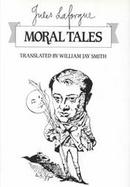Moral Tales
- Binding: Hardcover
- Publisher: New Directions Publishing Corporation
- Publish date: 07/01/1985
Product notice
Returnable at the third party seller's discretion and may come without consumable supplements like access codes, CD's, or workbooks.

Please Wait

